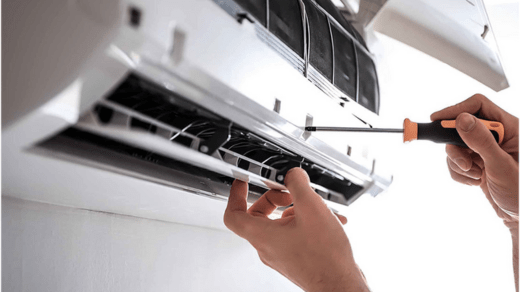Maintaining HVAC equipment is crucial for ensuring peak performance and longevity. Effective HVAC equipment maintenance not only enhances system efficiency but also extends the life of your heating, ventilation, and air conditioning (HVAC) system. This guide provides essential insights into maintaining HVAC equipment, focusing on key practices and the importance of regular air conditioning service.
Understanding HVAC Equipment Maintenance
HVAC systems are complex, integrating various components that work together to regulate indoor climate. Regular maintenance of these components is vital for preventing unexpected breakdowns and optimizing performance. Routine upkeep can help detect issues early, avoid costly repairs, and ensure that your system operates efficiently throughout its lifespan.
The Importance of Regular Maintenance
Routine maintenance of hvac equipment is essential for several reasons:
- Efficiency: Well-maintained HVAC systems operate more efficiently, reducing energy consumption and lowering utility bills. Regular servicing helps keep the system running smoothly and avoids the strain on components that can lead to inefficiencies.
- Longevity: Regular upkeep extends the lifespan of your HVAC equipment. Components like filters, coils, and belts can wear out over time, but timely maintenance helps prevent premature failures and costly replacements.
- Air Quality: Proper maintenance ensures that your HVAC system continues to deliver clean and healthy air. Dirty filters and components can affect indoor air quality, leading to potential health issues.
- Cost Savings: Preventive maintenance is more cost-effective than emergency repairs. Regular check-ups can identify minor issues before they escalate into major problems, saving you money on repairs and replacements.
Key Maintenance Tasks for HVAC Equipment
To ensure optimal performance, focus on the following essential maintenance tasks for HVAC equipment:
- Filter Replacement: Air filters trap dust, dirt, and other particles that can clog the system and reduce efficiency. Regularly replacing filters, typically every 1-3 months, is crucial for maintaining airflow and indoor air quality.
- Coil Cleaning: Both the evaporator and condenser coils collect dirt over time, which can hinder heat exchange and reduce system efficiency. Cleaning these coils annually helps maintain proper heat transfer and prevents overheating.
- Check Refrigerant Levels: Proper refrigerant levels are essential for efficient cooling. Low refrigerant levels can indicate leaks or other issues. An HVAC technician should check and adjust refrigerant levels during routine maintenance.
- Inspect Ductwork: Leaks and blockages in ductwork can impact airflow and reduce system efficiency. Regularly inspecting and sealing ductwork ensures that conditioned air reaches its intended destination.
- Examine Thermostat: A well-functioning thermostat ensures accurate temperature control. Regularly checking and calibrating the thermostat helps maintain comfort and efficiency.
- Clean Drains and Condensate Pans: HVAC systems produce condensate as part of the cooling process. Clogged drains and pans can lead to water damage and mold growth. Regular cleaning and inspection prevent these issues.
- Lubricate Moving Parts: Components such as fans and motors have moving parts that require lubrication. Proper lubrication reduces friction and wear, extending the life of these components.
Air Conditioning Service
Regular air conditioning service is a critical component of HVAC maintenance. Professional service technicians perform in-depth inspections and maintenance tasks that are not always feasible for homeowners. Key aspects of air conditioning service include:
- Comprehensive Inspection: Technicians conduct thorough inspections to identify potential issues, including checking electrical connections, inspecting components, and testing system performance.
- System Calibration: Technicians calibrate the system to ensure it operates efficiently and maintains the desired temperature settings.
- Safety Checks: Safety checks are performed to ensure that the system operates safely, including inspecting for gas leaks and verifying that all safety mechanisms are functioning correctly.
- Professional Cleaning: Professional cleaning of coils, ducts, and other components ensures that the system remains in optimal condition and prevents buildup that can affect performance.
- Documentation and Recommendations: Technicians provide detailed documentation of the service performed and offer recommendations for any additional repairs or improvements needed.
Conclusion
Proper HVAC equipment maintenance is essential for ensuring peak performance, efficiency, and longevity. By adhering to regular maintenance practices and scheduling professional air conditioning service, you can keep your HVAC system in top condition, reduce energy costs, and enhance indoor comfort. Investing time and resources into maintenance not only preserves your HVAC equipment but also contributes to a healthier and more efficient home environment.
